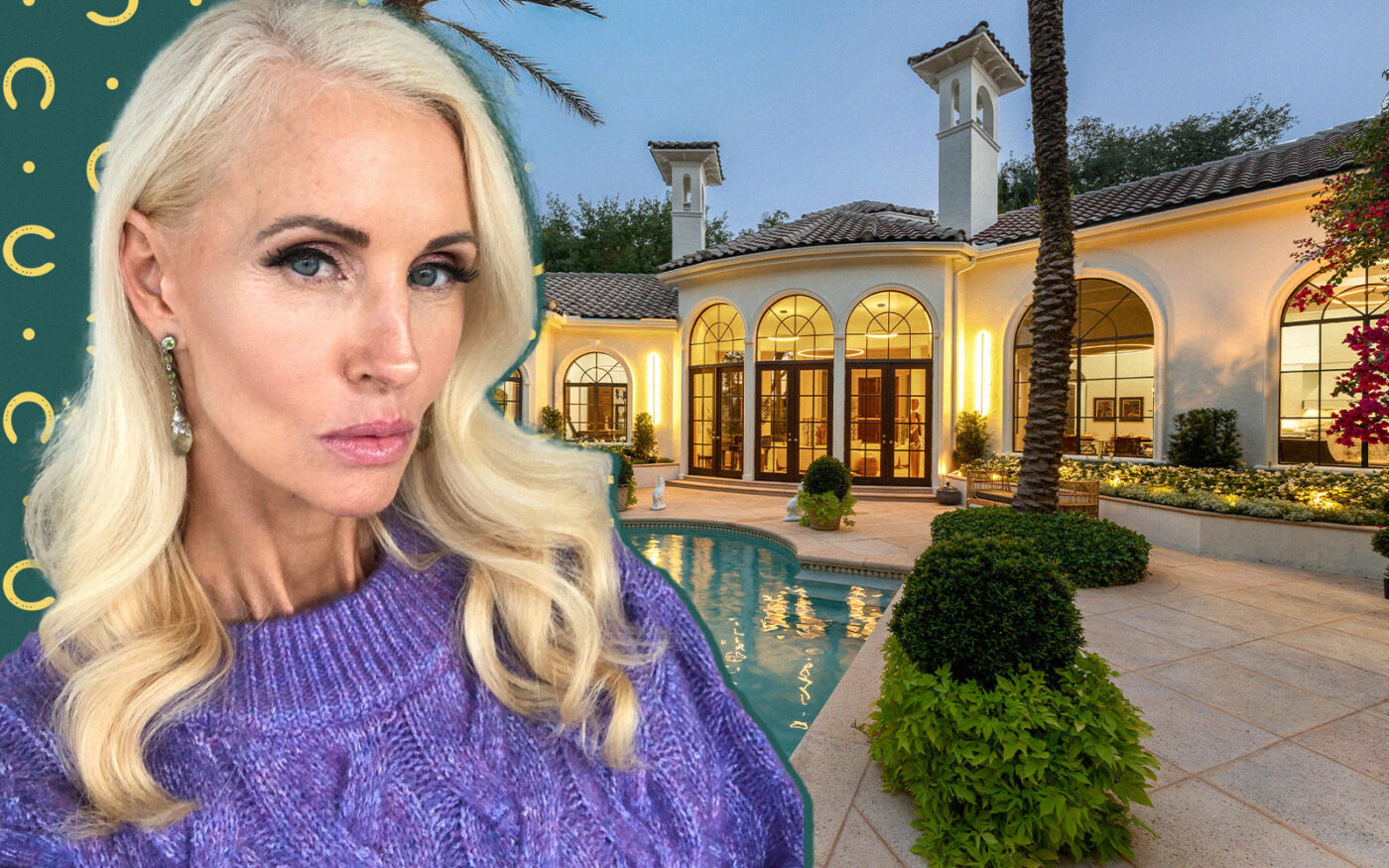Beyond Wellington’s polo fields, golf courses and equestrian trails, Katrina Peebles sees a market full of untapped potential and money to be made.
Peebles, wife of developer and Miami Beach-based Peebles Corporation founder Don Peebles, has launched her own real estate venture. She’s still the longtime principal and creative director at the Peebles Corporation, but now that her kids are grown and out of the house, she’s embarked on a second chapter — flipping luxury homes. She’s currently targeting Wellington, the equestrian village where her daughter Chloe Peebles has competed for years as a showjumper.
And she’s making millions.
Last month, Peebles sold the house at 2650 Sheltingham Drive in the Palm Beach Polo & Country Club for $6.2 million, after she bought it from Johnson & Johnson heiress Alison Firestone Robitaille for $3.1 million in January. She renovated the 5,900-square-foot house and found a buyer for the home in less than six months.
Her rapid-fire turnaround is a recipe she’s repeated across her projects. In 2020, she bought a house at 2691 Sheltingham Drive in Wellington for $1.9 million. Six months and one renovation later, she sold the home for $4.1 million, according to property records.
“I saw undervalued real estate in a gated community,” Peebles said. Three years out from that flip, she’s targeting more Wellington homes for her whirlwind renovations.
Peebles chatted with The Real Deal about her approach to flipping houses, why Wellington is a prime market for her, and what is like being a woman in the male-dominated real estate industry. The conversation has been condensed for brevity.
The strategy
Peebles’ strategy for flipping homes hinges on a few key elements. She identifies undervalued homes in amenity-heavy communities, and is ultra-efficient with renovations. She also targets her peers as buyers. As Peebles sees it, no one is more keenly attuned to the wants and needs of a rich person than a fellow rich person.
“I design homes pretending I’m the buyer. I’ve lived a very fortunate life, living in really beautiful homes myself,” she said. She and her husband have homes in Santa Fe, New Mexico; South Florida; Bridgehampton, New York; and a “very artistic loft” in Manhattan’s Flatiron District.
“I do know what somebody buying at a certain level wants,” she said. “There’s just certain things that people look for.”
These include but are not limited to: home gyms, massage tables, pedicure chairs, shampoo chairs, catering kitchens, dog wash stations and wine storage. Peebles said luxury buyers often have personal trainers, aestheticians, stylists, chefs and other staff that need these kinds of facilities in the home. Yet, most developers don’t design for them in their projects.
“I understand [buyers’] needs,” she said.
Peebles also looks for amenities in the communities in which she develops, like Wellington’s gated Palm Beach Polo & Country Club. The community is at the heart of the equestrian village, and also has private security, an abundance of nearby golf courses, and is a short drive from Palm Beach.
She’s also renovating homes in a market where new and updated houses are in short supply and high demand. She uses the same team for each renovation, leads the interior design herself, and updates the kitchens, bathrooms, landscaping and more in every project.
“I don’t do major, major guts,” she said. “But it isn’t lipstick either.”
Wellington’s captive audience
Peebles said Wellington is a particularly advantageous market for her for a number of reasons, most importantly that she has a very stable pool of buyers and limited competition.
“I think the opportunity exists because it is smaller, and the bigger players haven’t looked at it,” she said. “Larger developers want to find a formula that works and do it many, many times.”
That’s not possible in Wellington, a village with strict restrictions on development designed to protect the equestrian character of the community. Very few opportunities exist to develop major sites, and they are often contentious, like Mark Bellissimo’s controversial 600-acre project that was approved earlier this year.
Peebles said this constraint on supply helps to boost demand for properties, as does the horse show that is Wellington’s beating heart: the Winter Equestrian Festival.
“It [is] the longest, biggest horse show anywhere in the world. You compete from January to the end of March,” she said. “That is a very large, captive market that needs a place to live.”
Her “captive market” is also very wealthy. Wellington attracts equestrians from some of the world’s richest families: Jennifer Gates, Georgina Bloomberg and Eve Jobs all train and compete there.
“The individuals who buy in Wellington are a very resilient group of people,” Peebles said. “It is often generational wealth which is more resilient to interest rates.”
Unequal ground
That so few women are real estate developers has always baffled Peebles, but she thinks they will become the norm in years ahead.
“We’re certainly equal consumers of real estate. We’re not generally equal participants in the industry, in its most meaningful, money-making forms,” she said. “That part has never made sense to me.”
“Banks aren’t making loans to people who can’t show a long history of W2s. They don’t care if you have assets,” she said. “Access to capital I think is the biggest barrier for women going into business. We’ve probably worked really, really hard, but we don’t fit the profile on a piece of paper for most lending institutions.”
Peebles said women’s myriad non-professional experiences can prepare them for real estate careers in meaningful, if not always obvious, ways.
“I think sometimes women don’t realize the hard work they do has actually made them career-ready,” she said. “There [are] lots and lots of people who do what I do. I like to say they don’t do it as fast, or as well.”
